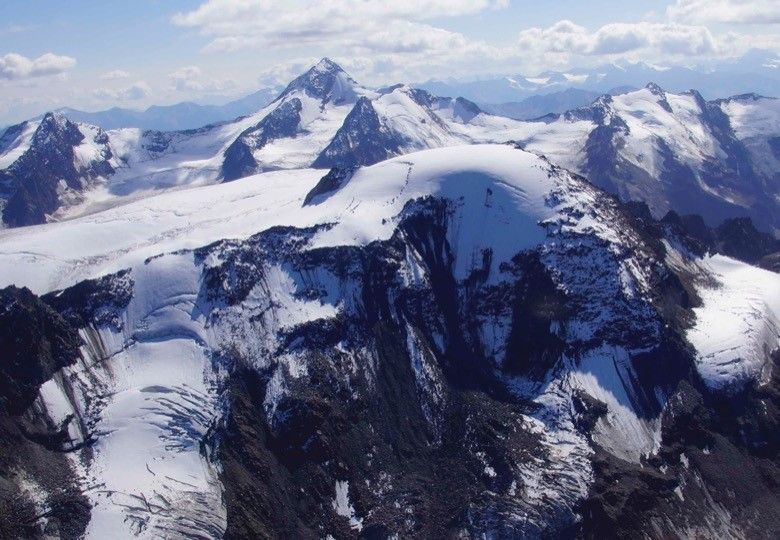This live science article indicates that ice and glaciers in the Alps at around 3300BC may have been very much less than they are today.
Maybe they were even only around the mountain tops
What caused the temperature warming and ice to melt and then expand over the last 12,000 years ?

 www.livescience.com
www.livescience.com
Just a few hundred years before Ötzi was born, nearby mountains may have been ice-free.
Ötzi died in about 3300 B.C.
The findings suggest that during the Holocene, the epoch covering 11,650 years ago to the present, glaciers in the Alps have changed dramatically.
Ötzi the Iceman, a Copper Age wanderer found mummified in the Alps nearly three decades ago, may have lived at a time when the glaciers were advancing down from the highest peaks to the lower slopes of the mountains.
The ice that preserved Ötzi upon his death in about 3300 B.C. has melted since the mummy was discovered in 1991. But a new analysis of ice only 7.4 miles (12 kilometers) from where Ötzi was found suggests that only the very highest peaks were covered in glaciers until slightly before the iceman's lifetime.
Just a few hundred years before Ötzi was born, nearby mountains may have been ice-free.
The findings suggest that during the Holocene, the epoch covering 11,650 years ago to the present, glaciers in the Alps have changed dramatically.
Related: Mummy melodrama: Top 9 secrets of Ötzi the iceman
"Our main finding is that the ice is 5,900 years old, more or less, which is just a bit older than the iceman," said Pascal Bohleber, who studies glacial ice at the Austrian Academy of Sciences. "This suggests that, in this region, we had a time where glaciers started to form in conditions that were ice-free or with glaciers distinctly smaller than today."
Maybe they were even only around the mountain tops
What caused the temperature warming and ice to melt and then expand over the last 12,000 years ?

Ötzi the Iceman may have scaled ice-free Alps
During or just before the life of the Copper Age wanderer, many high peaks in the Alps were ice-free.
Just a few hundred years before Ötzi was born, nearby mountains may have been ice-free.
Ötzi died in about 3300 B.C.
The findings suggest that during the Holocene, the epoch covering 11,650 years ago to the present, glaciers in the Alps have changed dramatically.
Ötzi the Iceman, a Copper Age wanderer found mummified in the Alps nearly three decades ago, may have lived at a time when the glaciers were advancing down from the highest peaks to the lower slopes of the mountains.
The ice that preserved Ötzi upon his death in about 3300 B.C. has melted since the mummy was discovered in 1991. But a new analysis of ice only 7.4 miles (12 kilometers) from where Ötzi was found suggests that only the very highest peaks were covered in glaciers until slightly before the iceman's lifetime.
Just a few hundred years before Ötzi was born, nearby mountains may have been ice-free.
The findings suggest that during the Holocene, the epoch covering 11,650 years ago to the present, glaciers in the Alps have changed dramatically.
Related: Mummy melodrama: Top 9 secrets of Ötzi the iceman
"Our main finding is that the ice is 5,900 years old, more or less, which is just a bit older than the iceman," said Pascal Bohleber, who studies glacial ice at the Austrian Academy of Sciences. "This suggests that, in this region, we had a time where glaciers started to form in conditions that were ice-free or with glaciers distinctly smaller than today."






